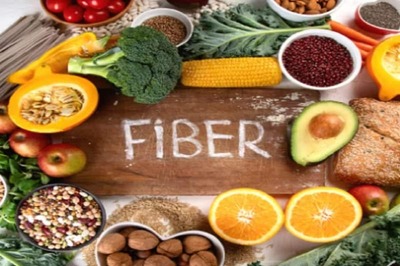
views
In the hustle and bustle of our daily lives, it’s easy to overlook the impact of what we consume, particularly when it comes to sugar. As our understanding of diabetes grows, so does our awareness of the repercussions of excessive sugar intake, with women being particularly vulnerable to its effects, especially during menstruation.
Sugar isn’t just confined to the sweet crystals we add to our tea or coffee; it hides in plain sight in various forms, such as starch found in fruits, vegetables, and dairy products. The ramifications of high sugar levels extend beyond the obvious concerns about diabetes. Excessive sugar can throw our hormonal balance off-kilter, leading to issues like insulin resistance and inflammation. For women, this imbalance manifests during menstruation, bringing about stomach cramps, nausea, and mental confusion.
Yet, the solution isn’t a simple reduction in sugar consumption. A holistic approach involving a balanced diet is key to improving women’s health. Nutrient-rich foods like whole grains, lean proteins, fruits, and pulses provide essential minerals, helping maintain a stable hormonal balance and ward off potential issues.
Nutritionist Prerna Trivedi sheds light on the hormonal havoc wreaked by sugar, stating, “The main hormonal problem caused by sugar is insulin resistance. This decrease in insulin production elevates sugar levels, prompting the body to produce more insulin and the androgen hormone. Androgen, typically a male hormone, can induce irregular periods and acne due to the inflammation caused by sugar, making menstrual cramps more severe.”
Curbing sugar intake is a challenge, especially when cravings intensify during menstruation. However, succumbing to these desires may exacerbate pain and other disruptions. Opting for whole grain foods and natural alternatives like jaggery, dates, and country sugar becomes crucial. Artificially sweetened foods and drinks should be avoided, as they pose inherent dangers.
When sweet cravings strike, distractions like a brisk walk or engaging in sports can be effective tools. It’s about striking a balance and making mindful choices. Women must navigate the delicate balance between satisfying cravings and maintaining their well-being, especially during menstruation.
Understanding the nuanced effects of sugar on women, particularly during menstruation, empowers individuals to make informed choices. While sugar may be a ubiquitous part of our diets, moderation and a focus on whole, nutritious foods can mitigate potential hormonal imbalances and inflammation. Taking charge of one’s health involves not just reducing sugar but embracing a comprehensive approach that encompasses a diverse, balanced diet. By doing so, women can pave the way for healthier hormonal equilibrium, easing the challenges posed by excessive sugar intake during crucial phases like menstruation.




















Comments
0 comment